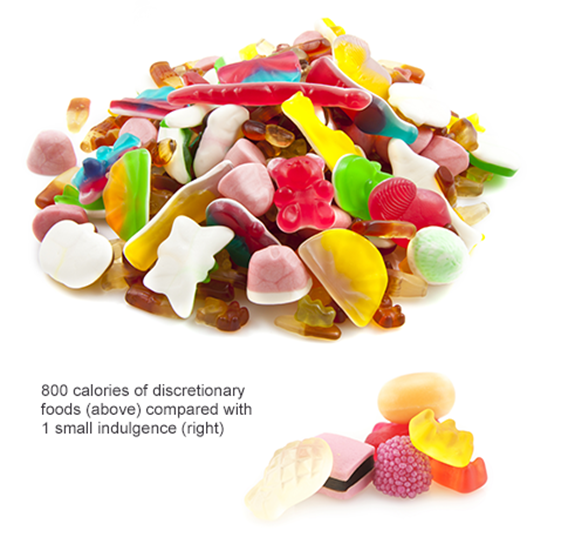The average Aussie risks gaining several kilos over the holiday period. That might sound like a small number, but few of us lose it when the festive season is over. We asked Professor Manny Noakes, research director of our Food and Nutrition Flagship and co-author of the famous Total Wellbeing Diet, for five tips on how to survive the silly season without gaining extra baggage.
‘Tis the season of indulgence.
1. Don’t just count kilojoules
Restricting your kilojoule intake is a surefire way to lose weight, but cutting back indiscriminately can lead to an unbalanced, unhealthy diet. Noakes recommends a focus on food groups rather than kilojoules counting. Ensuring you include food from each of the essential food groups each day, is a better way to get healthy.
“It is a much easier approach because you get optimal nutrients without having to learn the kilojoules of hundreds of different foods,” Noakes says. The essential food groups include protein foods such as meat, fish, chicken and eggs; dairy foods; low GI grains and cereals; fruits and vegetables, and healthy oils such as spreads and nuts.
2. Limit indulgences
Thirty-five per cent of the average Australian’s diet comes from “discretionary” foods with little nutritional value, such as alcohol, chips, lollies and cakes. That adds up to a whopping 2500-3500 kilojoules a day. “If you want to lose weight, limiting indulgences can have a dramatic impact over a period of time,” says Noakes. Try limiting yourself to one small indulgence per day (see blow), or seven in a week, to give yourself a small reward for eating well.
1 small indulgence equals:
- 100ml Wine
- 4 squares of chocolate
- 1 fun size packet of potato chips
- 1 scoop of ice cream
- 1 chocolate biscuit
3. Stand every hour
It’s important to increase your everyday activity to help prevent weight gain and a good place to start is limiting the amount of time you sit per day.
Noakes recommends looking for opportunities to get off the couch or office chair and move wherever possible. For example taking the stairs, having short stand-up meetings at work, standing up when you take a phone call, or standing at parties rather than sitting. “Simply making an effort to spend less time sitting down and stand every hour can improve your health,” says Noakes.
4. Manage your appetite
During the festive season it’s hard to say no to holiday nibbles and cocktails or that extra snag at the weekend BBQ. Proactively managing your appetite with a higher protein, low GI diet can help prevent poor choices. “Protein controls appetite and low GI carbohydrates sustain energy, so having a light meal of 100g of lean protein food with a slice of grainy bread one hour before a party can help keep hunger in check,” says Noakes.
5. Sign up for a formal healthy eating plan
There is evidence showing that people who seek support in their weight loss efforts do better than those who go it alone. “We know that people who take part in weight loss programs find it easier to reach their goals,” says Noakes. “The support that people receive and the regular weight checks contribute to some of that success. The type of eating plan can also make a difference and a higher protein low GI plan has the best evidence for sustained weight loss success.
“The type of eating plan can also make a difference and a higher protein low GI plan has the best evidence for sustained weight loss success. That’s why we are releasing this new version of the Total Wellbeing Diet available as an online program in a new trial.”
Registrations for the online trial of our Total Wellbeing Diet are open until 10 November 2014. The cost for the 12-week program is $99 which is fully refundable if you complete the trial.
This article was originally published on Body & Soul.




8th June 2015 at 6:42 pm
I’m glad I was able to read your post. This is very helpful not only during holidays but as a general tip. Thank you for sharing!
17th April 2015 at 1:34 am
These are very useful tips. Thank you for quality information you give!!!
6th November 2014 at 5:31 pm
Is this research still being funded by the meat industry?
7th November 2014 at 12:27 pm
Hi there,
CSIRO has ongoing relationships and research projects with a number of stakeholders in the agriculture (grains, horticulture, dairy and meat) sector. However, the Total Wellbeing Diet online trial is not a research project and it isn’t funded by the meat industry.
Cheers
Nick